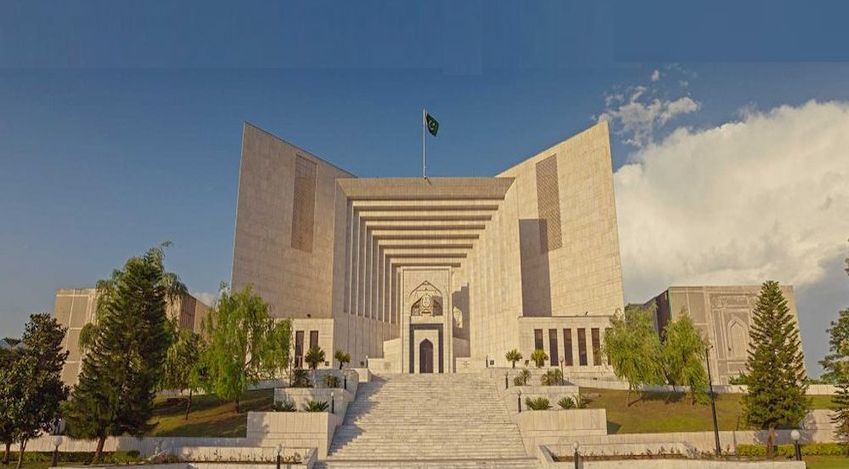The Proprietary Rights acquired during the Original Allotment could not be invalidated due to subsequent administrative changes in the Classification of Land --- Supreme Court of Pakistan
Islamabad 08-10-2024: The Supreme Court of Pakistan dismissed a petition filed by the Member, Board of Revenue, Punjab, affirming the proprietary rights of a displaced person’s heir under the Tarbela Dam Oustee Scheme. The Court ruled that the allotment of land to the respondent’s father, Razi Khan, who was displaced due to the construction of the Tarbela Dam, could not be invalidated due to subsequent changes in the classification of the land.
The bench, comprising Mr. Justice Amin-ud-Din Khan and Mr. Justice Athar Minallah, heard Civil Petition No. 148-L of 2024 and upheld the Lahore High Court’s decision to grant proprietary rights to the respondent, Sheraz Khan. The allotment was originally made in 1975, but the respondent was denied proprietary rights by the revenue authorities due to an alleged conflict with prohibited area restrictions that were imposed after the allotment.
The judgment, authored by Mr. Justice Athar Minallah, emphasized that the rights of the respondent’s father, who was one of the affected displaced persons of the Tarbela Dam Project, could not be taken away by subsequent changes in the status of the land. The Court held that proprietary rights should be judged based on the circumstances at the time of the original allotment, which were in compliance with the Colonization of Government Lands (Punjab) Act, 1912 and the scheme’s criteria.
The Court cited the case laws of “Province of Punjab through District Collector, Vehari v. Ghulam Muhammad” (1994 SCMR 975) and “Province of Punjab through Secretary Colonies, Board of Revenue, Lahore and others v. Ch. Abdus Sattar” (2012 SCMR 1007) to reinforce the principle that any subsequent changes in the classification of the prohibited area could not retroactively affect the rights accrued to the allottee at the time of allotment.
The Supreme Court also ruled that the denial of proprietary rights was a violation of Article 24 of the Constitution of Pakistan, which guarantees that no person shall be deprived of his property save in accordance with law and for a public purpose with compensation. Mr. Justice Athar Minallah highlighted the human cost of displacement and emphasized the State’s responsibility to compensate affected persons justly and fairly.
The Court observed that the government and its functionaries are under a constitutional obligation to protect the rights accrued to displaced persons under schemes such as the Tarbela Dam Oustee Scheme. Any subsequent expansion of prohibited zones could not negate the compensation rights previously granted under law.
The Supreme Court’s decision reaffirms the legal protections for displaced persons and highlights the principle that proprietary rights, once conferred, cannot be nullified due to later administrative changes. The judgment is a significant development in property rights jurisprudence, especially in cases involving displacement due to state projects.
Powered by Froala Editor








